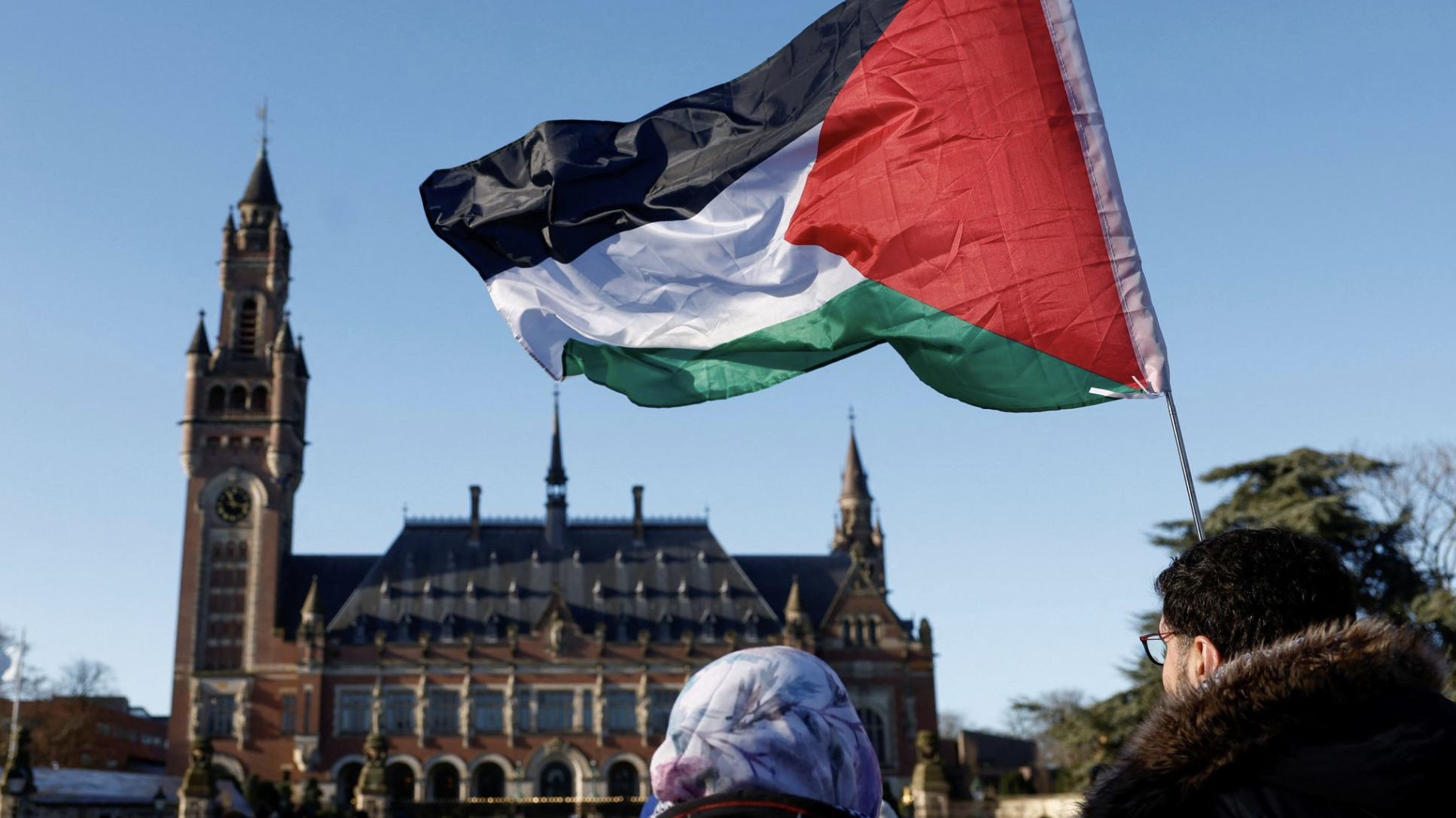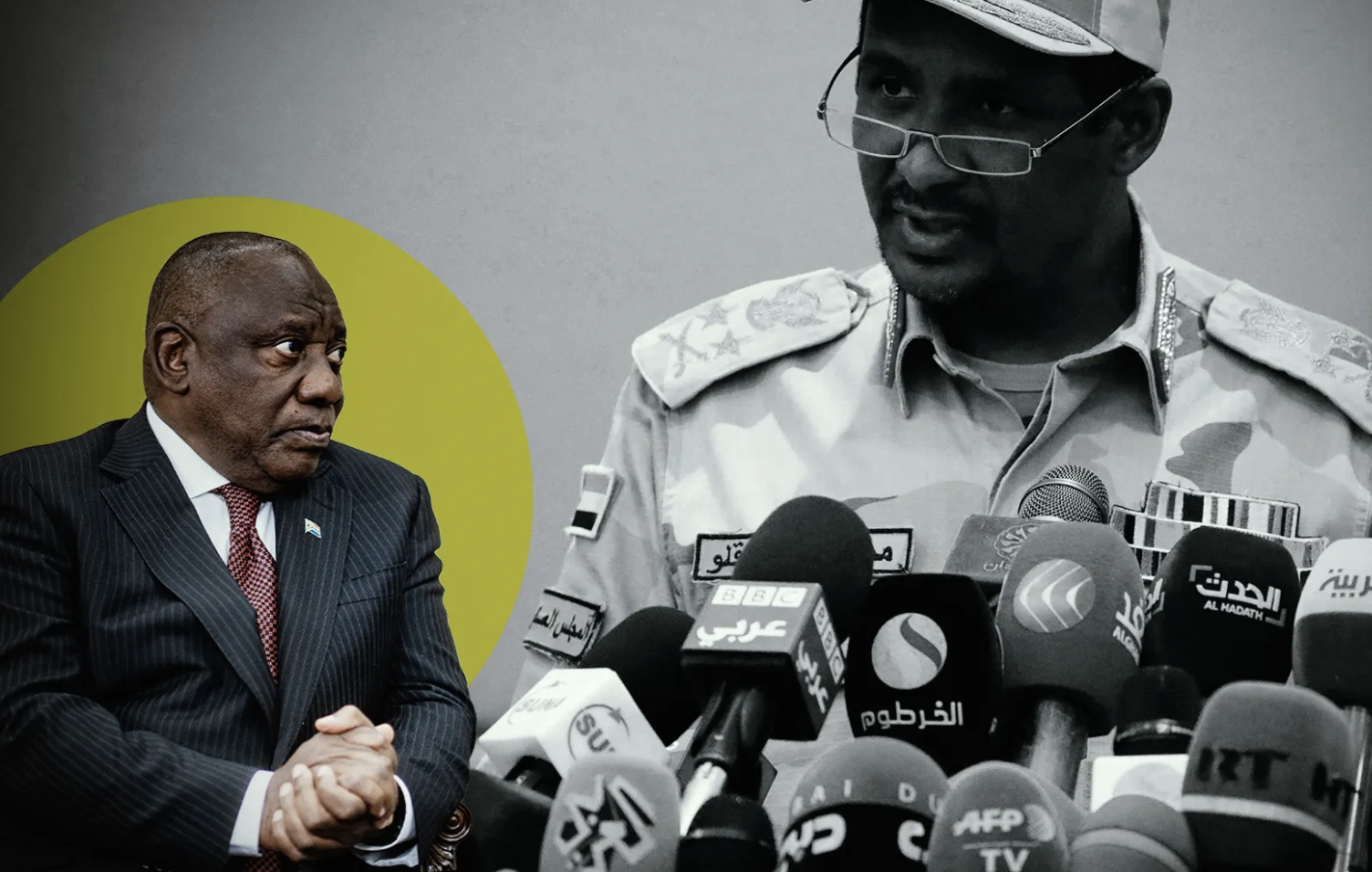News
The ICJ Ruling: South Africa is Claiming Easy Victories
While the court ruling will hopefully lead to a reduction in unnecessary civilian casualties, a closer examination of the judgment clearly shows that it was much less of a victory than Dirco and Ramaphosa have made out.

Former Director, The Brenthurst Foundation

Former Research Director, The Brenthurst Foundation

South Africa’s publicity machinery went into overdrive even before the International Court of Justice (ICJ) announced its ruling on provisional measures Israel must take to prevent genocide in Gaza.
The Department of International Relations and Cooperation (Dirco) was quick off the mark with a press release stating: “Today marks a decisive victory for the international rule of law and a significant milestone in the search for justice for the Palestinian people. In a landmark ruling, the International Court of Justice (ICJ) has determined that Israel’s actions in Gaza are plausibly genocidal and has indicated provisional measures on that basis. For the implementation of the international rule of law, the decision is a momentous one.”
Hours later, President Cyril Ramaphosa addressed the nation on television. “The ICJ, as the principal judicial organ of the United Nations, has handed down a ruling that the State of Israel should immediately implement a set of provisional measures to prevent any further acts of genocide in Gaza, to desist from such acts, and to take effective measures to prevent the destruction and ensure the preservation of evidence relating to acts of genocide. As the South African government, we welcome the decision of the ICJ.”
Ramaphosa can be forgiven for his misstatements as the news back home has not been good lately, with violent crime soaring, the lights continuing to be turned off by blundering Eskom and the movement of goods through the ports grinding to a halt. All this with an election coming up.
The primary misstatement he made was that the court ordered provisional measures “to prevent further acts of genocide in Gaza”. This implies that the court found that genocidal acts had been committed and that “further” acts must be halted. The court made no such finding on the merits of the case, which will be the subject of subsequent hearings.
As for Dirco’s sudden conversion to “the implementation of the international rule of law” following South Africa’s flirtation with Russia, Sudanese warlords and the like, the less said the better.
While the court ruling will hopefully lead to a reduction in unnecessary civilian casualties, a closer examination of the judgment clearly shows that it was much less of a victory than Dirco and Ramaphosa have made out.
South Africa’s case before the ICJ has been welcomed in some quarters as a seminal moment in the country’s foreign policy, but Pretoria’s conversion to the pursuit of human rights over politics remains questionable, at least until it applies the same standards to its African brothers and sisters, and to Iran, Syria and even Hamas in the Middle East.
A blow for Hamas
The jewel in the crown of the South African case was the demand for an immediate end to Israel’s operation in Gaza. By not accepting the South African argument for a ceasefire, the court was, in effect, saying that the pursuit of the Hamas terrorists who slaughtered 1,200 people, mainly civilians, in Israel on 7 October was legitimate.
This is a blow for Hamas and its Iranian backers who have been assiduously courting South Africa’s assistance as thousands of Hamas fighters succumb to the Israeli military operation.
The court actually said: “The Republic of South Africa and the State of Israel shall each, in accordance with their obligations under the Convention on the Prevention and Punishment of the Crime of Genocide, in relation to the Palestinian people, take all reasonable measures within their power to prevent genocide.”
The court went on to say that Israel must “desist from the commission of any and all acts within the scope of Article II of the Convention, in particular: (a) killing members of the group; (b) causing serious bodily or mental harm to the members of the group; (c) deliberately inflicting on the group conditions of life calculated to bring about its physical destruction in whole or in part; and (d) imposing measures intended to prevent births within the group”.
The court also pointedly called on Hamas to release the hostages taken on 7 October, a stand which South Africa for some reason omitted to request.
Dirco’s statement ended with a crescendo. “As Nelson Mandela momentously declared, “Our freedom is incomplete without the freedom of the Palestinians”.
Mandela, who visited Israel and received an honorary doctorate from the University of Ben Gurion, did indeed hold strong views on Israel and Palestine, but they were nowhere near the present desire by South Africa, Iran and Hamas to destroy the Jewish state.
He said in 1993: “As a movement, we recognise the legitimacy of Palestinian nationalism just as we recognise the legitimacy of Zionism as a Jewish nationalism. We insist on the right of the State of Israel to exist within secure borders, but with equal vigour support the Palestinian right to national self-determination.”
He might not have been as enthusiastic as the callow Ramaphosa to embrace one side without reaching out to the other to keep the prospect of a real resolution in sight. That is not seeking resolution, or even protection of human lives. It’s just cheap political theatre, global grandstanding carried out at the expense, ultimately, of the South African taxpayer. Favouring Hamas and Tehran cannot have helped to derisk South Africa as a trade partner and investment destination.
The absence of balance and perspective is revealing and informs where Africa ranks as a South African foreign policy priority. The lives of Sudanese, Congolese or, closer to home, Zimbabweans, are as important as Palestinians, though apparently Pretoria does not think so if prioritising the ICJ case is anything to go by.
The revolutionary Amilcar Cabral famously said: “Tell no lies. Expose lies whenever they are told. Mask no difficulties, mistakes, failures. Claim no easy victories.”
Ramaphosa would do well to heed this advice.
This article originally appeared on the Daily Maverick
Photo: Piroschka van de Wouw/Reuters


